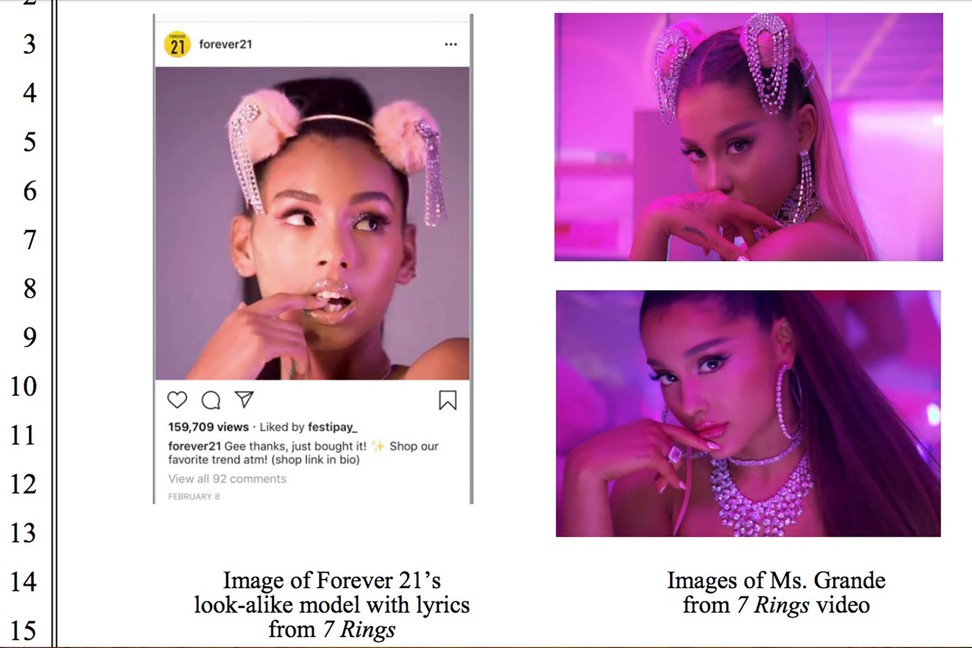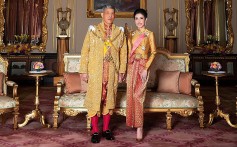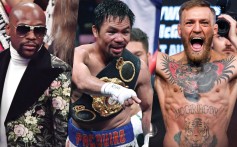Is this the end of Forever 21? How owners Chang Do-won "Don" and Chang Jin-sook rose to become billionaires – then lost their fortune
Is this the end of Forever 21? How owners Chang Do-won "Don" and Chang Jin-sook rose to become billionaires – then lost their fortune
Citing a too-fast approach to fast fashion, the company has closed stores all over the world and filed for Chapter 11, but the Korean-American owners remain millionaires
Forever 21 opened its flagship store at Beijing in 2012 and has recently filed for Chapter 11. Photo: Simon Song
In just five years, Korean-born American business mogul and founder of Forever 21 Chang Do-won "Don" and his wife, Chang Jin-sook, have earned and lost their billionaire status. In the whirlwind of fast fashion, the pair went from rags to super-rich, but now, they are waking up from the American dream.
At the end of September, retail giant
filed for bankruptcy and announced its plan to reorganise its business. The company is reported to cease operations in 40 countries and shed 350 stores worldwide as a part of the Chapter 11 filing.
Chang comes from a humble background. He was born in Myeong-Dong, a village in Seoul, South Korea, on March 20, 1954. In 1981, he and his wife immigrated to the US. When they first arrived in the country, they hardly knew any English and had only a high school diploma.
Chang was working three jobs to make a living – he would work at a coffee house in the morning, pump gas in the afternoon and help out in a clothing store in the evening. However, Chang noticed that “the people who drove the nicest cars were all in the garment business”, so he knew he wanted to eventually open his own clothing store.
In 1984, the Changs opened their first 900-square-feet store with their US$11,000 savings in the Highland Park area in Los Angeles. Fellow Korean immigrants in the neighbourhood would come to this little store – then called Fashion 21 – to purchase clothes. Little did anyone know, that small family-run shop would later turn into a fast-fashion empire with more than 800 stores in 57 countries.
Because of the right marketing strategy and the Changs hard work, Fashion 21’s sales took off. The clientele soon grew beyond the Korean community and the store recorded US$700,000 in revenue the first year.
On the back of the big success of the first store, Chang started a rapid expansion of the fast-fashion chain – there was a new store opened every six months. Chang had also changed the store name to Forever 21.
Forever 21 has always been and is most likely to remain a privately-held family business. Chang’s two Ivy League-educated daughters, Linda and Esther Chang, head the company’s marketing and visual display department. “It’s important my daughters learn from the hard work my wife and I put into this company,” said Chang. “Who better to look out for your best interests than family?”
Being a devout Christian, Chang loves giving back to the community by donating his wealth. He and his wife founded the Chang 21 Foundation to donate to churches and other faith groups. Chang also cites the Bible as his favourite book. This is also why Forever 21 shopping bags all have the verse John 3:16 printed on the bottom.
In 2015, the stores brought in a whopping US$4.4 billion in revenue, and Chang and his wife’s combined net worth shot to US$5.9 billion. On that high note, Forever 21 began its crazy world expansion with the goal of becoming a US$8 billion company by 2017.
However, this has proven to be the start of the retail giant’s downfall.
The fast expansion quickly drained the company’s cash flow, and the company began to be late on payments to subcontractors and reportedly had to shut down two major stores in LA to pay back US$150 million worth of debt.
The fact that customers are shifting their focus from cheap prices to higher quality — coupled with the entry of online retailers who have no problem churning out new designs just as quickly as the other fast-fashion competitors — has led to fewer customer visits to Forever 21 stores.
Being accused of copyright infringement also seems to be a perpetual problem for the fast-fashion empire. Although many lawsuits have been filed against Forever 21, it has yet to be found guilty in court. In 2019, singer Ariana Grande sued Forever 21 for tricking customers into thinking that the pop star had endorsed its merchandise by posting images of her and using a model that dresses and looks like her.

A picture of a model on the Instagram account of fashion retailer Forever 21 is seen alongside images of pop star Ariana Grande in a screenshot of a legal complaint filed in US District Court in Los Angeles, California. Photo: Reuters
This has made things worse for the fast fashion brand, even as it is reportedly heading toward bankruptcy.
According to a July Forbes report, the husband-and-wife team’s combined fortune has fallen to US$1.6 billion because of the plunging sales figures, meaning that with US$800 million in net worth each, Do Won Chang and Jin Sook Chang have lost their individual billionaire status.
Although the private company’s financial details are not disclosed, the closure of Forever 21 stores in major markets including China and London may suggest some truth to the bankruptcy story. Bloomberg cited sources close to the matter that the company was in talks for additional financing to restructure its debt, but that it is now preparing for a bankruptcy filing that would hopefully help the company shave off unprofitable stores and recapitalise the business.
In a letter to its customers after on the day of the bankruptcy application, Forever 21 wrote: “We are confident this is the right path for the long-term health of our business. Once we complete a reorganisation, Forever 21 will be a stronger, more viable company that is better positioned to prosper for years to come.”
Chang’s success story perfectly encapsulates the American dream; even if it has taken a wrong turn at present, the ending is still unwritten.
“I had dreamed of coming to the US since I was in the sixth grade,” Chang said in a 2016 interview. “I came here with almost nothing and I’ll always have a grateful heart toward America for the opportunities that it’s provided me.”
South China Morning Post Publishers Limited ("SCMP") may partner with affiliates or other partners for
where SCMP will earn fees/commission when users make purchases by linking to such sites. Such links do not influence editorial content in any way.












Comments